More in National

Reflecting on the Memorial of the Presentation of the Blessed Virgin Mary: Embracing Faithfulness through Love
On November 21, the Church commemorates the Memorial of the Presentation of the Blessed Virgin Mary, an occasion that highlights her profound dedication to God's service from a young age. This observance inspires the faithful to emulate Mary’s steadfast commitment through a life rooted in prayer and contemplation. Mary’s example challenges believers to maintain unwavering fidelity to God’s plan, even when faced with seemingly insurmountable obstacles. The call is to enter into a serious, enduring commitment to God, persevering regardless of difficulties encountered along the way. Given human limitations and the inevitability of error, the question arises: how can one remain faithful to such commitments? The response lies in growing in love—mirroring the boundless love exemplified by Mary. This love, according to St. Paul, "bears all things, believes all things, hopes all things, endures all things" (1 Cor 13:7), transcends sin and death and renews all aspects of life. Engaging in this dynamic love not only aligns believers with God’s perfect design but also fosters spiritual growth beyond personal desires. Recognizing this truth provides profound motivation to continue loving despite trials, mistakes, and challenges encountered in honoring commitments. Spiritual growth does not necessitate extraordinary acts but can be cultivated daily by infusing ordinary tasks with greater love. Overcoming routine and boredom requires intentional pauses for prayer and meditation, allowing fresh inspiration to enliven everyday responsibilities. While acknowledging natural limits in the physical and temporal realms is essential, believers are reminded that their spiritual capacity for self-giving is limitless. Harmonizing these dimensions requires cultivating proper attitudes, skills, and virtues to fully express one’s devotion. True fidelity to commitments flourishes in freedom, propelled continually by love. Such love is inherently vibrant, creative, and fruitful—a defining feature of a faithful life. Ultimately, this faithful love reflects the divine image and likeness as God is love. By mirroring Mary’s fidelity to God’s will, believers embody divine love through steadfast dedication in their own lives.
National
|2 min read
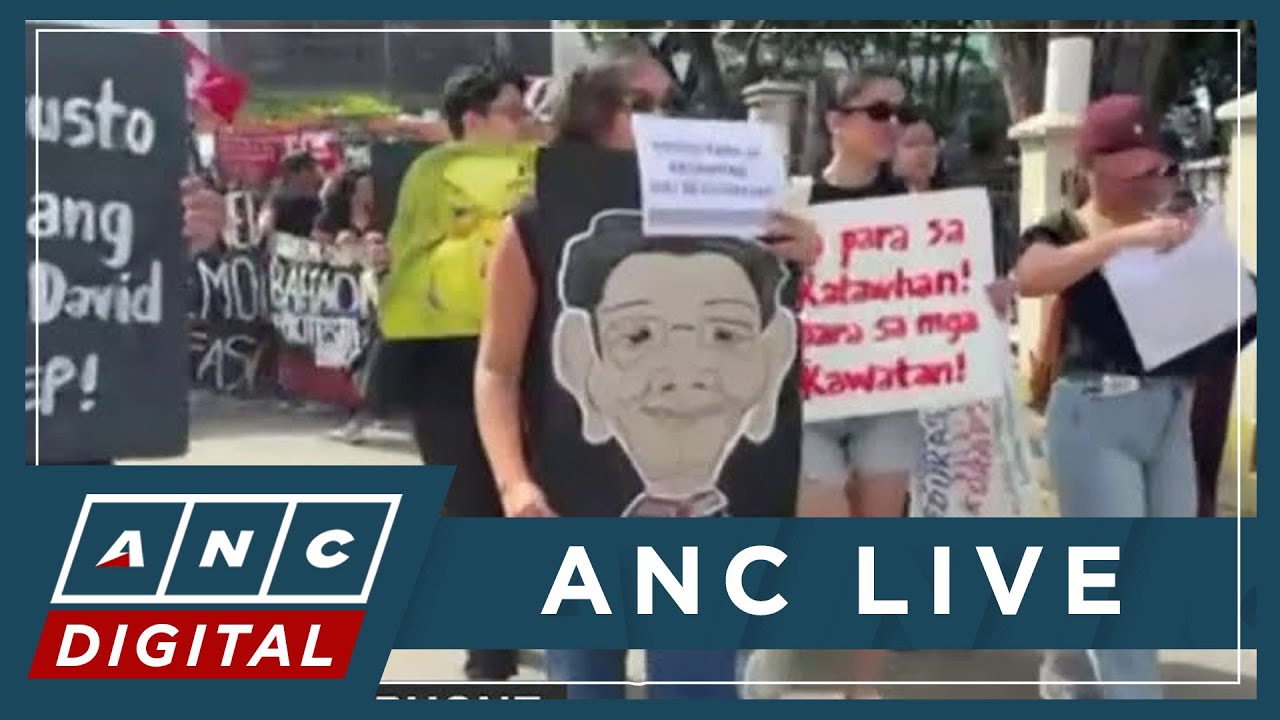
Cebu Archbishop Calls for Peaceful Anti-Corruption Rally on November 30
Cebu Archbishop Alberto "Abet" Uy has issued a call to all Cebuanos to participate in a peaceful and prayerful gathering scheduled for November 30, 2025, aimed at condemning corruption and advocating for transparent governance. In a statement shared on social media, Uy, alongside the Cebu Anti-Corruption Coalition, urged the community to unite in a collective expression of concern and hope for a nation rooted in honesty and integrity. "I, your Archbishop, together with the Cebu Anti-Corruption Coalition, invite all peace-loving and pious Cebuanos to gather as one community this November 30, 2025, for a prayerful and peaceful assembly—an expression of our collective dismay, righteous anger, and deep desire for a renewed nation founded on integrity, honesty, and good governance," he explained. The Archbishop highlighted Cebu’s longstanding reputation as a place of faith and goodwill. "We are a people known for our devotion, our resilience, and our deep longing for truth, justice, and peace," he said. He expressed deep concern over the persistent presence of graft and corruption in the country, describing it as both a moral and spiritual crisis. "Corruption is not only a political issue; it is a moral disease, a spiritual crisis, and a grave sin against God and neighbor," Uy stated. The event, called SuPaKK (Sugboanong Pakigbisog Kontra Korupsyon), will begin with a Holy Mass at 2:30 p.m. at the Pilgrim Center of the Basilica Minore del Santo Niño de Cebu. The Eucharistic celebration aims for the purification of the nation and the conversion of those involved in corrupt practices. Uy also noted that non-Catholic attendees will assemble separately at Plaza Independencia. Following the Mass, a peaceful march will commence at 3:45 p.m., proceeding from the Pilgrim Center to Fuente Osmeña Circle, symbolizing solidarity, humility, and hope. A program featuring prayers, personal testimonies, and messages advocating sincere, transparent, and accountable public service will be held at 4:45 p.m. at Fuente Osmeña Circle. Archbishop Uy emphasized the non-partisan and non-violent nature of the assembly, clarifying that it aims neither to deepen divisions nor to promote any political agenda. Instead, it seeks to unify Cebuanos under a common moral stand against corruption. Participants will collectively voice demands including "Enough with corruption," "Enough with deception," and "Enough with systems that hurt the poor and betray the common good." The Archbishop called on a broad spectrum of society—parish communities, religious groups, youth organizations, academic institutions, civic leaders, families, and individuals—to join the event. He urged everyone to demonstrate Christian values not just within church walls but in societal actions. "Let us pray together. Walk together. Stand together. Witness together," he added. Concluding his appeal, Uy warned that corruption thrives on silence and inaction but affirmed that when people unite through prayer and moral conviction, healing can begin. "Evil triumphs when good people remain silent. Corruption grows when honest citizens lose courage. But when God’s people rise—not in violence, but in prayer…not in hatred, but in moral conviction—something powerful happens: society begins to heal," he said.
National
|3 min read
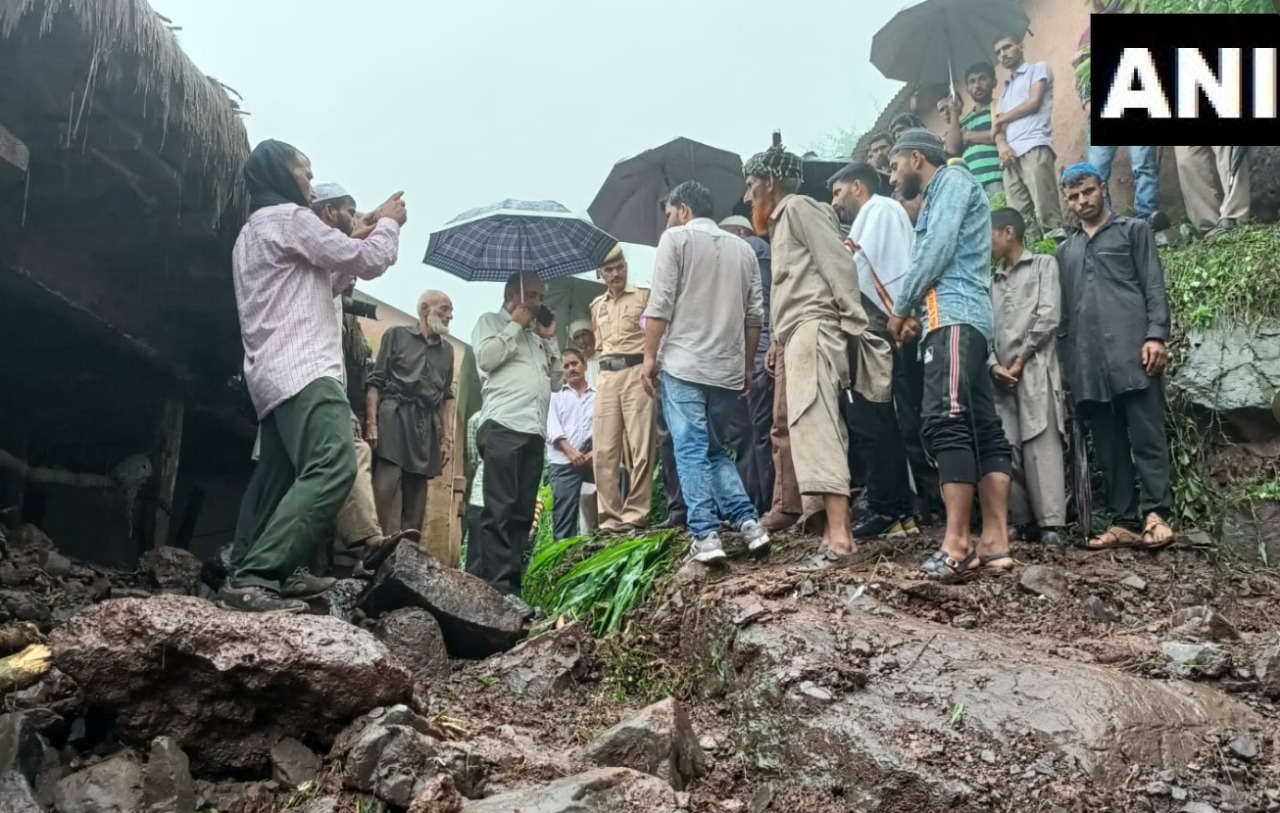
Fatal Explosion in Jolo Claims Two Lives During Illegal Fishing Dynamite Fabrication
COTABATO CITY — A tragic accident occurred late Saturday, November 22, in Barangay Tulay, Jolo, Sulu, where two men lost their lives due to an explosion while fabricating fishing dynamite in their residence. According to Lt. Col. Annidul Sali, chief of the Jolo Municipal Police Station, Abdul Tiri Basang, 70, and 40-year-old Indal Tho Pascual died instantly from severe injuries sustained in the powerful blast that demolished their shanty in Barangay Tulay, the capital of Sulu province. Local officials confirmed that Basang and Pascual were engaged in the illegal production and distribution of fishing dynamite, utilizing materials such as ammonium nitrate or potassium chlorate as explosives. The two were reportedly supplying these dangerous devices to fishermen across Jolo and neighboring municipalities. The explosion also injured two other individuals: Tulli Mislani, 40, and Nuraisa Mislani Pascual, 37, who are currently receiving medical attention. Authorities said the blast was so intense that it rendered the makeshift home structurally unsound and beyond repair. Barangay officials continue to investigate the incident amid growing concerns over the dangers posed by illicit fishing methods to both community safety and the environment.
National
|1 min read
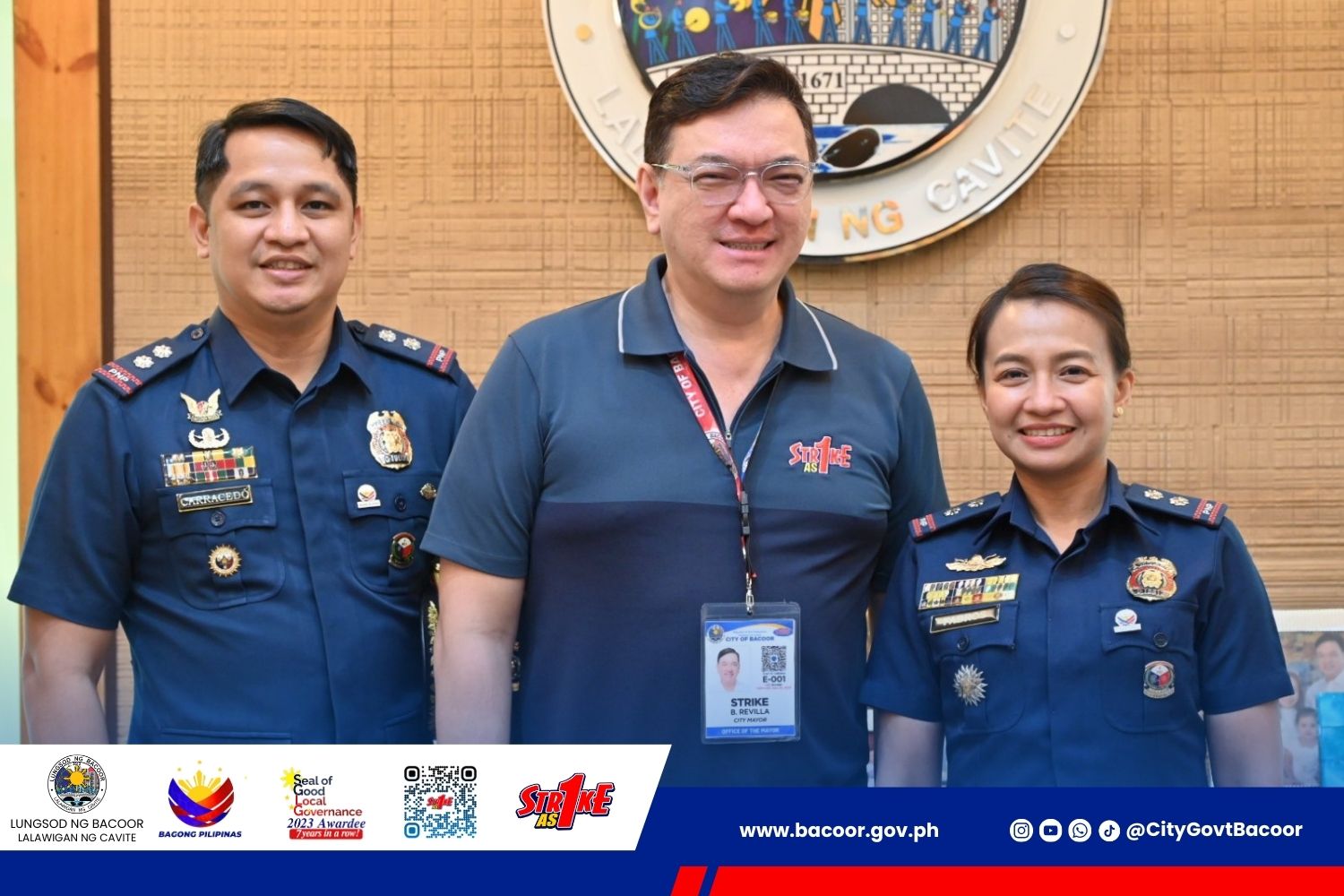
NAPOLCOM Launches Investigation into Alleged Rape and Robbery by Cavite Police Officers
The National Police Commission (NAPOLCOM) announced on Monday the commencement of an investigation into the alleged rape and robbery of an 18-year-old woman by police officers in Bacoor City, Cavite. "We acted promptly," NAPOLCOM Chief Commissioner Rafael Vicente Calinisan stated. "Before all details became public, we dispatched investigators to ensure a fair and comprehensive inquiry. We will not tolerate even a single day of inaction when the police service’s integrity is at risk." Fourteen officers from the Philippine National Police (PNP) Drug Enforcement Group–Special Operations Unit 4A are implicated in the incident. Calinisan confirmed that a four-member investigative team has been sent to Bacoor City to independently evaluate the situation and determine administrative responsibility. The Commission is coordinating closely with local police units to collect essential documents, evidence, and witness statements to accelerate the fact-finding process. Preliminary findings indicate the operation lacked proper coordination, formal authorization, and records of lawful police activity at the time, raising significant administrative and operational concerns. Should probable cause be established, those involved will face administrative charges, including grave misconduct and conduct unbecoming of a police officer, potentially resulting in dismissal from service. NAPOLCOM praised the Bacoor City Police, Regional Intelligence Division, Regional Headquarters Support Unit, and Regional Mobile Force Battalion for apprehending eight detained officers and recovering stolen property. Six remain at large, with four reportedly planning to surrender. "The public deserves a trustworthy police force. We will not permit the actions of a few to tarnish the dedication of the many honest and diligent officers," Calinisan emphasized. The victim is expected to formally file a complaint with NAPOLCOM on Tuesday. In a related briefing, Police Brigadier General Elmer Ragay, acting director of the PNP Drug Enforcement Group, reported that four of the six officers still evading arrest have indicated intentions to surrender. "Just to update, eight were captured yesterday, six remain at large, and four are signaling possible voluntary surrender. We continue efforts to hold all accountable," Ragay said. In total, 15 personnel from PDEG Special Operations Unit 4A, including their commander, have been relieved from duty over command responsibility. The commander had filed leave from November 25 to 28 but reportedly ceased duties as early as November 22. According to Ragay, the officers reportedly conducted an anti-illegal drug operation during which the targeted individual escaped, leading to the detention and subsequent alleged rape of the suspect's girlfriend. The PNP reiterated its firm stance against abuse and misconduct, pledging swift and appropriate sanctions against erring officers. PNP acting chief Police Lieutenant General Jose Melencio Nartatez underscored that personnel who embody dedication and integrity will be rewarded, while those violating standards will face the law. "The organization upholds zero tolerance for abuse, misconduct, or any act undermining public trust," Nartatez stated. "Those who stray from these principles will face immediate consequences." This ongoing investigation highlights the authorities’ commitment to accountability and maintaining public trust in law enforcement.
National
|3 min read
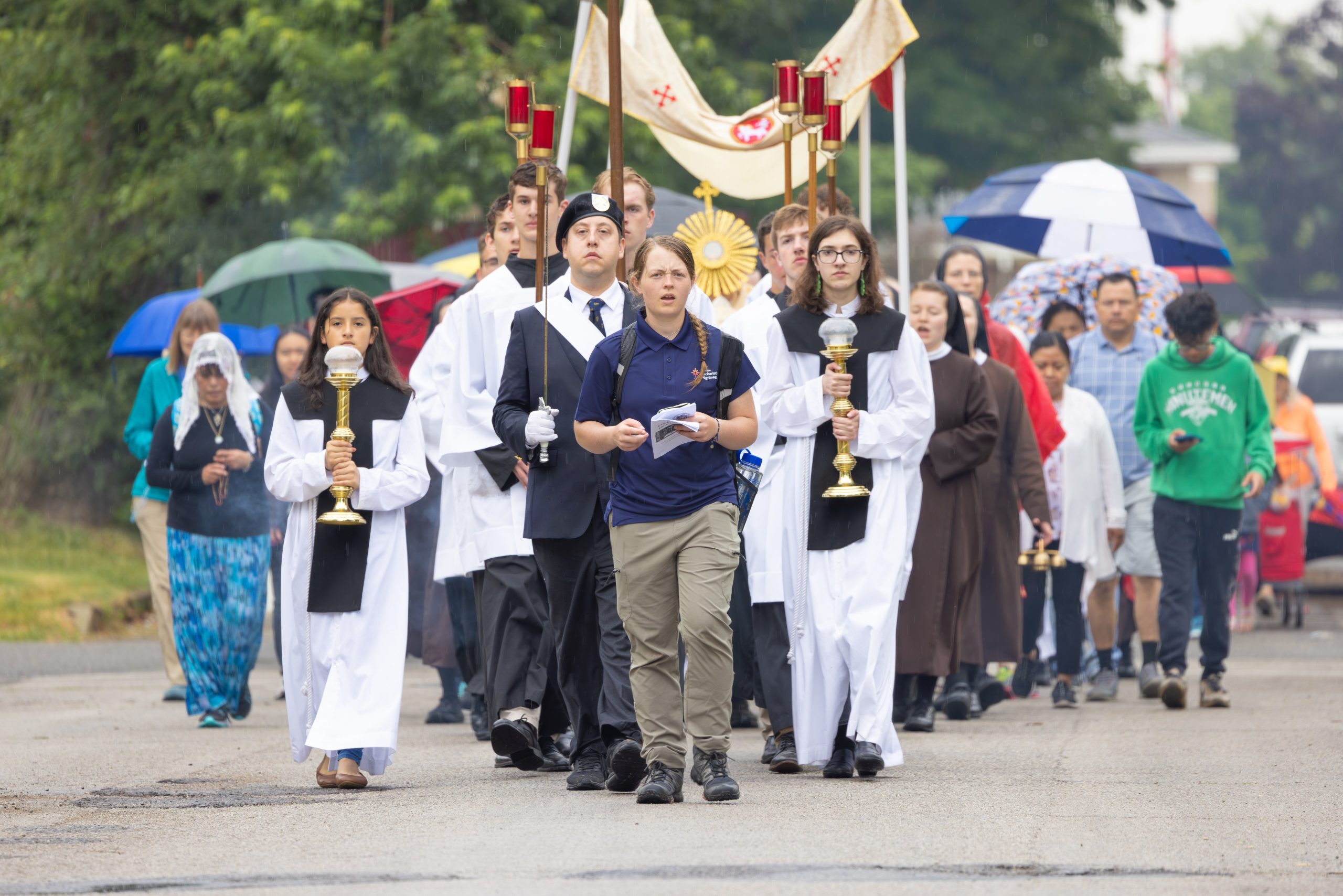
Tuguegarao Catholics Embark on Pilgrim Walk Advocating Honesty and Justice, Launch New Pastoral Plan
On November 23, 2025, Catholics across Cagayan province gathered in Tuguegarao City for the "Pilgrim Walk of Hope," carrying religious images and placards advocating for honesty, justice, and peace amid rising concerns about corruption in government. The event coincided with the Solemnity of Christ the King and served as an archdiocesan initiative pressing for moral leadership and integrity within both the Church and society. The walk culminated in a Eucharistic celebration led by Archbishop Ricardo Baccay, who emphasized that the kingship of Christ is characterized not by dominance but by compassionate service. He remarked, \"His kingship is about compassion, about relating to each other. A change of heart for Christ is a change of heart for His people. His kingship is where we long to belong.\" In conjunction with the pilgrimage, the Archdiocese of Tuguegarao launched its five-year pastoral plan, titled *Walking Together in Faith: A Missionary Conversion Towards a Synodal Church*, which sets the strategic direction for 2026 through 2031. This plan focuses on fostering missionary conversion through listening, participation, and the transformation of individuals, communities, and Church structures. Archbishop Baccay explained that the roadmap was developed through synodal consultations and responds to the need for spiritual renewal, discernment, shared decision-making, and participatory governance within the Church. The plan identifies six key priorities: strengthening families, revitalizing Basic Ecclesial Communities, promoting transparency and accountability, deepening lay involvement, nurturing servant leaders, and encouraging ecological conversion. Father Manuel Vicente Catral, Director of Pastoral Programs, unveiled the journey's official logo during the launch. The emblem, inspired by the Gospel invitation to \"Go to Galilee,\" incorporates symbolic motifs such as feet, a river, a boat, and a rising sun. These elements represent a Church that actively walks in mission, flows with its people, embraces mutual responsibility, and radiates the light of Christ and the fire of the Holy Spirit. Fr. Catral described the logo as a \"visual Gospel\" highlighting that missionary conversion commences in everyday environments where individuals live, work, and face challenges. He emphasized that the emblem is not merely artistic but a call to journey together in renewal and be continually sent forth in synodal mission. Prior to the plan's launch, approximately 500 parish leaders from 50 parishes participated in an orientation session. They reflected on their roles as \"missionary companions\" and discussed initiatives to create more inclusive church spaces that address the needs of marginalized communities.
National
|2 min read
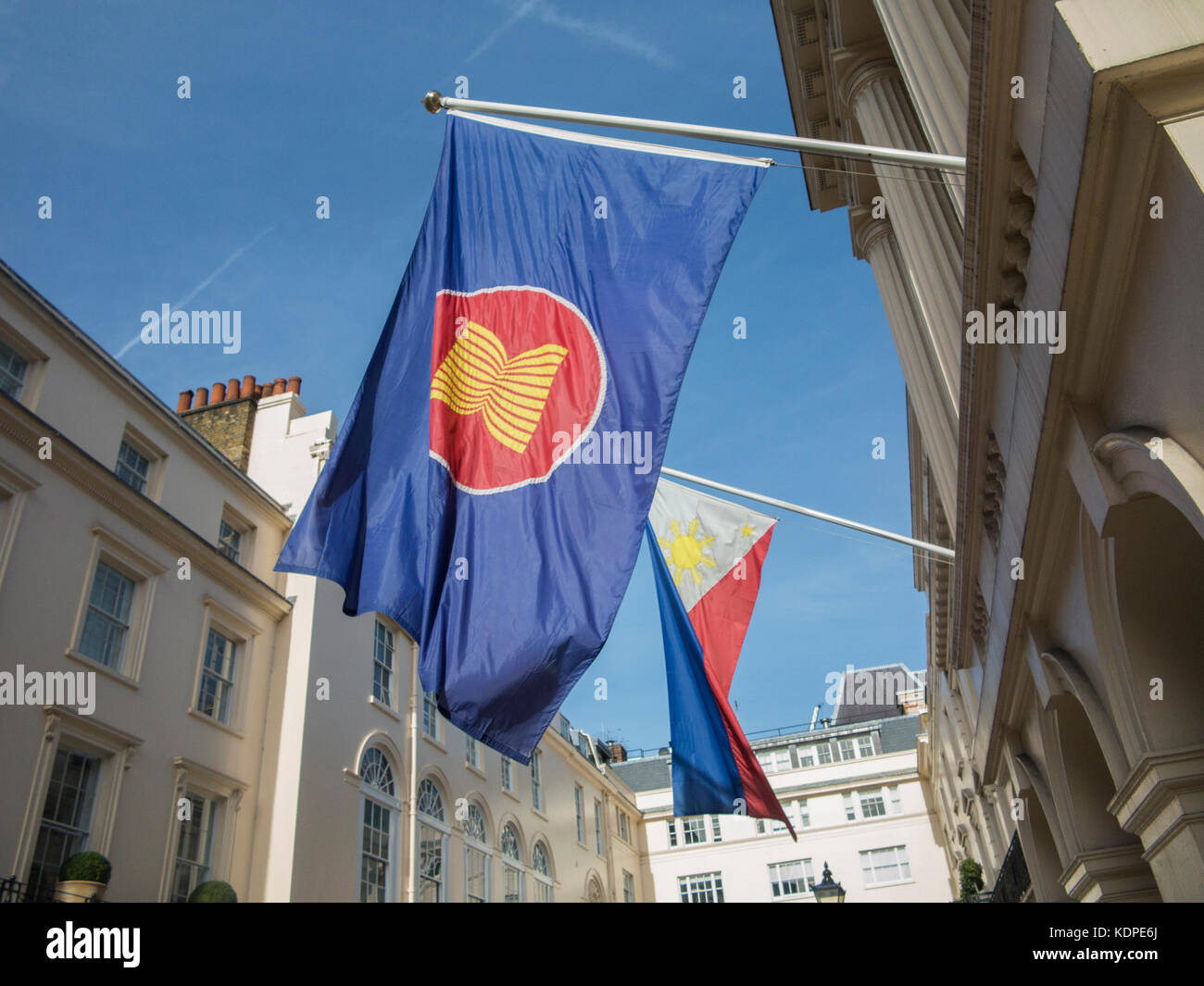
US Embassy Denies Ownership of Apartment in Olongapo City Amid Unauthorized Signage
The United States Embassy has publicly denied that a residential unit in Barangay Barretto, Olongapo City, is part of its official property portfolio. This statement comes after images circulated on social media showing a sign posted at the apartment gate claiming it was a US government facility. "We confirm that this is not an official U.S. government property and understand that the sign has been removed," said Jameson DeBose, spokesperson for the US Embassy, on Tuesday, November 25. The sign, which warned that unauthorized entry would lead to "persecution under international law," was accompanied by a US flag displayed near the entrance, causing confusion among residents and netizens. The US Embassy in Manila, located on Roxas Boulevard in Ermita, remains the sole official diplomatic mission representing the United States in the Philippines. Aside from the embassy, the only other American government presence in the country is the US Consular Agency in Lahug, Cebu City, with no other permanent facilities elsewhere. This incident clarifies that no official US government operations are conducted at the Olongapo apartment, reinforcing the embassy's exclusive jurisdiction within Metro Manila and Cebu.
National
|1 min read
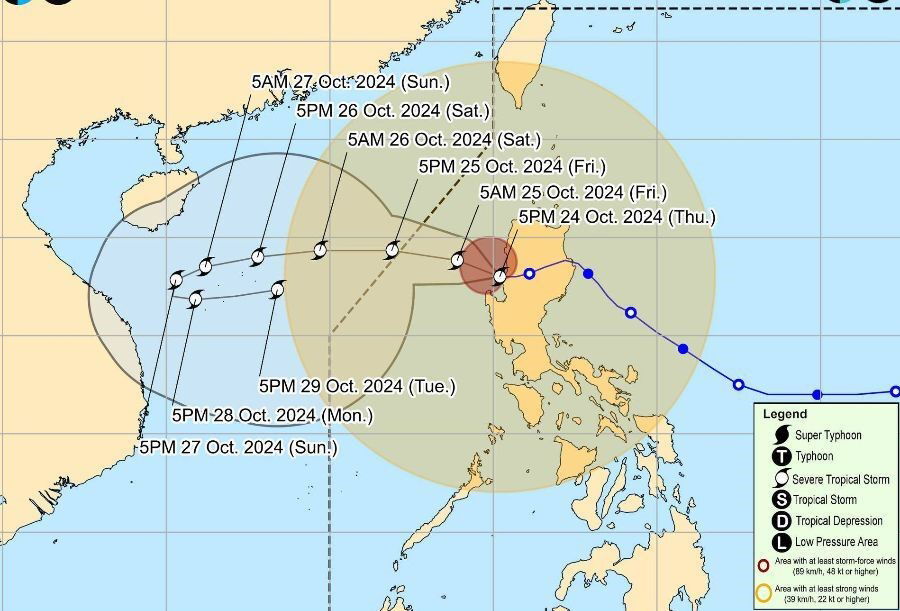
Tropical Storm Verbena Makes Seventh Landfall in Palawan Amid Intensification
Tropical Storm Verbena (Koto) intensified to maximum sustained winds of 75 km/h before making its seventh landfall in Linapacan, Palawan, at 10:50 p.m. on Tuesday, November 25. Following the landfall, the storm began moving northwest over the West Philippine Sea at 25 km/h. Prior landfalls of Verbena, when classified as a tropical depression, occurred in several areas on November 24 and 25, including Bayabas (Surigao del Sur), Jagna (Bohol), Talisay City (Cebu), Vallehermoso (Negros Oriental), San Lorenzo (Guimaras), and Miagao (Iloilo). As of 1 a.m. on Wednesday, November 26, the storm was already offshore and expected to pass north of the Kalayaan Islands later in the evening. The Philippine Atmospheric, Geophysical, and Astronomical Services Administration (PAGASA) forecasts that Verbena may strengthen into a severe tropical storm before leaving the Philippine Area of Responsibility (PAR), which is likely to occur by Thursday morning, November 27. PAGASA warned that moderate to intense rainfall persists across parts of Southern Luzon, especially in Occidental Mindoro, Oriental Mindoro, and Palawan, where rainfall amounts range from 100 to 200 millimeters. Other provinces such as Quezon, Marinduque, Romblon, and Camarines Sur are also experiencing moderate to heavy rain. Several areas remain under tropical cyclone wind signals as of early Wednesday, with Signal No. 2 indicating gale-force winds (62 to 88 km/h) in the Calamian Islands and northern Palawan mainland municipalities such as El Nido and Taytay. Signal No. 1, representing strong winds (39 to 61 km/h), covers provinces including Occidental and Oriental Mindoro, Romblon, Palawan, Antique, and parts of Aklan. In addition to the tropical storm, the northeast monsoon (amihan) has contributed to gusty conditions affecting large portions of Luzon and western Visayas provinces. This combination has led to hazardous sea conditions, with waves reaching up to 6 meters in height in areas like Batanes and the Babuyan Islands, posing risks for all vessels. Verena is the 22nd tropical cyclone of the 2025 season in the Philippines and the third to form in November, following Typhoon Tino (Kalmaegi) and Super Typhoon Uwan (Fung-wong). Meanwhile, significant rainfall associated with the shear line—a convergence zone of cold northeast monsoon winds and warm easterlies from the Pacific—is now mostly confined to Northern Luzon. Heavy to intense rain is expected in provinces such as Apayao, Cagayan, and Isabela through Friday. Authorities continue to monitor the storm and weather conditions closely, urging residents in affected areas to take precautions against flooding, landslides, and strong winds. --- *"Residents are advised to stay alert for updates as Tropical Storm Verbena moves away from the region but continues to bring adverse weather conditions,"* the PAGASA bulletin said.
National
|3 min read

President Trump Pardons Thanksgiving Turkeys Gobble and Waddle in Annual Ceremony
WASHINGTON — In keeping with a longstanding White House tradition, President Donald Trump pardoned two turkeys named Gobble and Waddle on Tuesday ahead of Thanksgiving. Both birds, each weighing over 50 pounds, were raised on a farm in North Carolina and stayed overnight at the Willard InterContinental Hotel near the White House prior to the ceremony. The custom of pardoning a Thanksgiving turkey dates back to 1989 under President George H.W. Bush. During the event, President Trump humorously mentioned initially considering the names Chuck and Nancy—an apparent reference to political figures Chuck Schumer and Nancy Pelosi —but decided against it, remarking, "I would never pardon those two." This latest ceremony adds to Trump’s extensive record of issuing pardons, having granted more than 1,600 during his second term, including to associates linked with attempts to contest the 2020 presidential election results and individuals connected to the January 6 Capitol riot. Addressing the cost of Thanksgiving dinners, President Trump highlighted data from a Walmart study suggesting a 25% decrease in holiday meal prices this year. However, an alternative report by the American Farm Bureau estimated a more modest 5% reduction, placing the average dinner cost at approximately $55.18. Trump also revisited last year's pardons by President Joe Biden of turkeys named Peach and Blossom, asserting without evidence that Biden’s pardons were invalid due to the use of an "automatic signing tool." Following the ceremony, Gobble and Waddle are set to retire at North Carolina State University’s College of Agriculture, as confirmed by the National Turkey Federation.
National
|2 min read

Over 2,000 Faithful Participate in Pilgrim Walk of Hope in Tuguegarao City
TUGUEGARAO City — More than 2,000 Catholic devotees from across Cagayan congregated in Tuguegarao City on Sunday, November 23, to participate in the "Pilgrim Walk of Hope." The faithful marched through city streets, carrying placards advocating for honesty, justice, and peace. The procession culminated at the St. Peter and St. Paul Metropolitan Cathedral, with participants gathering from four distinct assembly points. Held on the Solemnity of Christ the King, the event voiced a collective demand for moral leadership amid growing concerns over corruption and mismanagement of public funds. Rooted in prayer and religious devotion, the march also echoed broader calls for reform and accountability, resonating with civic initiatives such as the Trillion Peso March, initially organized on September 21 and scheduled for a significant recurrence on November 30. Fr. Manuel Vicente Catral, archdiocesan director of pastoral programs, described the event as "a testament that we are a Church on the move, a shepherding Church. In these footsteps, we see a desire for a Church and society that values a governance structure of transparency, accountability, and collaborative leadership." He emphasized that these virtues extend beyond administrative or political concerns, stating, "They are deeply rooted in the Gospel's call to justice and peace." The march also served as the platform to unveil the Archdiocese of Tuguegarao’s new five-year pastoral plan, set to guide religious activities between 2026 and 2031. Titled "Walking Together in Faith: A Missionary Conversion Towards a Synodal Church," this roadmap seeks a profound transformation within individuals, communities, and Church operations to foster participatory decision-making, enhanced transparency, and ministries more attuned to the people's needs. Archbishop Ricardo Baccay explained that the pastoral plan emerged from comprehensive consultations during the Vatican’s global synodal process. It addresses the people’s "quiet but persistent longing for spiritual renewal," alongside increasing demands for discernment, shared governance, and co-responsibility within Church life. The plan highlights priorities such as fortifying family life, revitalizing Basic Ecclesial Communities, amplifying lay participation, promoting accountability, nurturing servant leadership, and encouraging ecological conversion and stewardship. Fr. Catral concluded, "Our Pilgrim Walk and pastoral plan underscore the Church’s commitment to both spiritual renewal and active engagement in Church and society. Conversion of processes is not an abstract ideal but a practical expression of Gospel values."
National
|2 min read
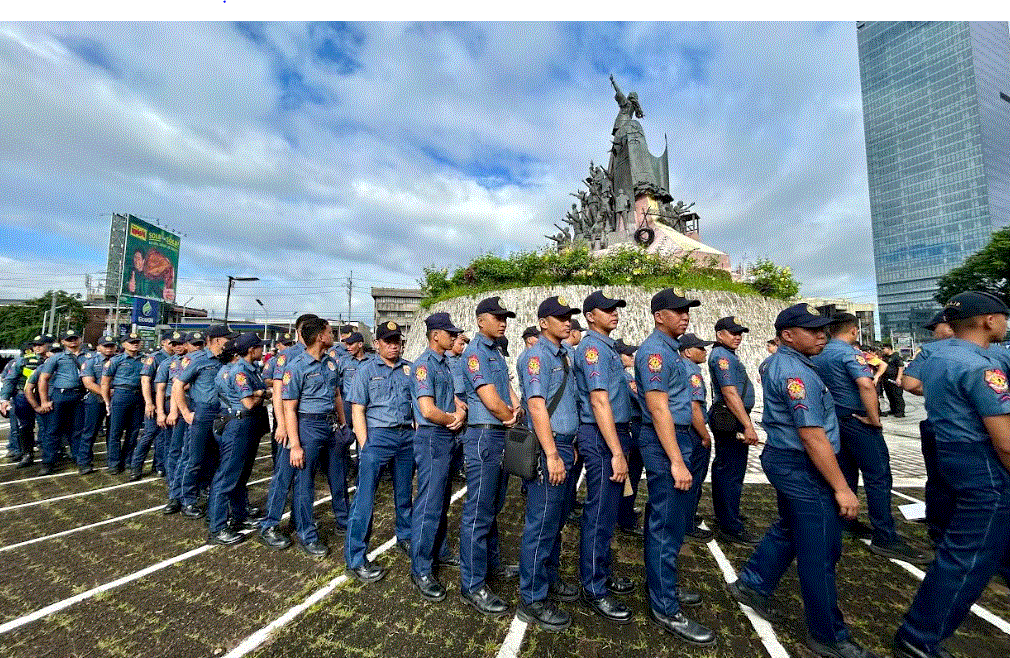
PNP Issues Warning Ahead of Second Trillion Peso March, Emphasizes Lawful Conduct
The Philippine National Police (PNP) has cautioned protesters against engaging in actions considered rebellion, insurrection, sedition, or incitement as the second Trillion Peso March is scheduled for November 30. Acting PNP Chief Lt. Gen. Jose Melencio Nartatez Jr. emphasized the importance of following established rules to guarantee the safety of all participants. "We urge everyone to comply with the agreed protocols. Cooperation with law enforcement is essential to maintain order and security," Lt. Gen. Nartatez stated in a Tuesday announcement. He reminded the public that under Batas Pambansa Blg. 880 and the Revised Penal Code, defiance through illegal acts such as rebellion and sedition remains strictly forbidden. "Our police units are committed to enforcing these laws firmly but fairly," he added. The first Trillion Peso March on September 21 witnessed violent outbreaks, notably around the Ayala Bridge and Mendiola Peace Arch in Manila. The PNP reassured the public of its dedication to preserving peace during the upcoming demonstration and encouraged participants to act peacefully, responsibly, and in cooperation with authorities. Separately, the Quezon City Police District disclosed it has formalized a memorandum of understanding with the march organizers to ensure the event proceeds smoothly and safely. The PNP clarified that the assembly is authorized solely at the People Power Monument and is limited to 8 p.m. on November 30. Although the march is hosted in Quezon City, certain areas such as Mendiola Street and the vicinity of Malacañang Palace are strictly off-limits for protests or gatherings. "Protesters must adhere to the designated route along White Plains and Temple Drive, with no movement beyond these boundaries permitted," the PNP emphasized. The demonstration is a response to allegations of corruption involving flood control and various infrastructure projects in the country.
National
|2 min read
